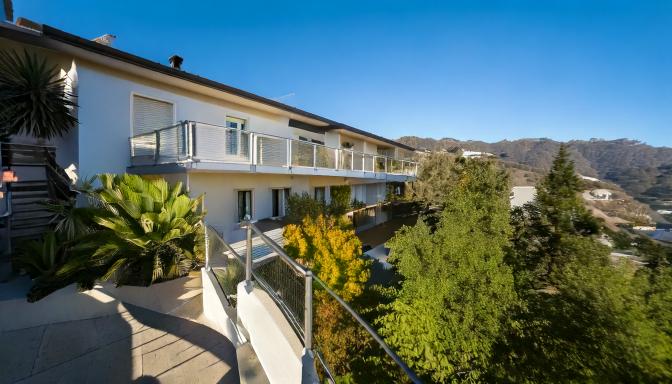Who’s Really Responsible for SB721?

When a balcony collapsed in Berkeley in 2015, claiming six young lives, it didn’t just shake a community—it sent shockwaves through California’s building regulations. That tragic moment was the spark behind Senate Bill 721 (SB721), a game-changing law aimed at preventing such failures from ever happening again. But while the law’s intent is clear—keeping residents safe from collapsing balconies, decks, and walkways—there’s one question that keeps coming up: who, exactly, is on the hook for making sure SB721 gets done?
Spoiler alert: it’s the building owner.
SB721 Is the Building Owner’s Responsibility
Let’s not sugarcoat it. If you own a multi-family residential building in California that falls under SB721, you’re the one legally and financially responsible for making sure it complies. This isn’t something you can shrug off or hope someone else handles quietly. The state has made it abundantly clear: the buck stops with whoever holds the title.
But Who Counts as the “Building Owner”?
Good question. Ownership isn’t always as straightforward as one person signing checks. Here’s how it usually breaks down:
- Individuals: If you personally own a triplex or small apartment building, it’s all on you.
- LLCs and Corporations: For larger properties owned by business entities, the organization is responsible—but practically speaking, the managing members or board are the ones who must act.
- Partnerships or Trusts: The partnership or trustee, respectively, bears the legal duty to comply.
In all these setups, control and title equal accountability. Delegating tasks doesn’t erase that.
Contact DrBalcony for a professional inspection!
Ensure the safety of your balcony and living space with DrBalcony – We’re a Tech Engineering firm that specializes in California SB326 & SB721 balcony inspections. Over 300+ completed projects in California.
Contact DrBalcony For A Professional Inspection!
Ensure the safety of your balcony and living space with DrBalcony – We're a Tech Engineering firm that specializes in California SB326 & SB721 balcony inspections. Over 300+ completed projects in California.
What Does SB721 Compliance Actually Involve?
Compliance isn’t just ticking off a box once every six years. It’s an ongoing obligation that includes inspections, documentation, budgeting, repairs, and—yes—dealing with city enforcement if necessary.
Here’s what you’re signing up for:
- Scheduling Inspections: You need to line up your building’s first inspection by January 1, 2026 (thanks to an extension under AB 2579), and every six years afterward.
- Paying the Bills: Inspections, invasive testing, and any repairs that follow? That’s all on your dime.
- Choosing Qualified Pros: SB721 sets strict rules on who can perform inspections. You need a licensed architect, engineer, certified inspector, or a seasoned contractor who fits specific criteria. Hiring the wrong person doesn’t get you off the hook—it just leaves you exposed.
- Reviewing the Report: Once the inspection’s done, you have to read, understand, and act on the findings. Fast.
- Immediate Hazards: You’ve got 15 days to notify local authorities and act.
- Non-Urgent Repairs: Get a permit within 120 days of the report. Then complete the work within 120 days after that.
- Storing Records: Keep all inspection reports and proof of repairs for 12 years. That’s two full inspection cycles.
- Planning for the Future: Smart owners budget ahead for long-term maintenance. Waiting until something breaks can lead to massive, unplanned costs—and possibly lawsuits.
Can Property Managers Handle This for You? Sort of. But Not Really.
Sure, you can (and probably should) hire a property management company. They’re invaluable when it comes to logistics—scheduling inspections, working with vendors, notifying tenants, keeping records. But they’re facilitators, not fall guys.
Legally, the responsibility is still yours. If they drop the ball, you suffer the consequences. At best, you might have a breach of contract claim. But you’ll still be the one dealing with fines or legal fallout.
And What About Contractors or Engineers?
They’re experts—valuable ones—but not the responsible party. Their job is to assess or repair your EEEs. Your job is to hire the right ones, pay them, and follow through on what they tell you needs fixing. The compliance duty never leaves your court.
The Real-World Risks of Ignoring SB721
SB-721 isn’t just about avoiding bureaucratic headaches. It’s about managing risk—financial, legal, reputational, and human.
- Fines: Local agencies can fine you $100–$500 per day of non-compliance.
- Safety Liens: If they step in and fix what you didn’t, they’ll bill you—and slap a lien on your property if needed.
- Legal Nightmares: If someone gets hurt because of a neglected EEE, you’re facing lawsuits, massive liability, and maybe even criminal charges if gross negligence is proven.
- Insurance Fallout: Your insurer may refuse claims, raise your premiums, or drop you altogether.
- Reputation Damage: Word spreads fast. A safety scandal can tank tenant trust and property value.
A Cautionary Tale
An LA property owner assumes their manager “has it covered.” No inspection happens. Then, a stair landing collapses, injuring a tenant. The inspection that should’ve caught the dry rot never happened. The city fines roll in. Lawsuits are filed. Insurance pulls out. The manager might take some heat—but the owner is the one paying the price, literally and reputationally.
Contact DrBalcony for a professional inspection!
Ensure the safety of your balcony and living space with DrBalcony – We’re a Tech Engineering firm that specializes in California SB326 & SB721 balcony inspections. Over 300+ completed projects in California.
Contact DrBalcony For A Professional Inspection!
Ensure the safety of your balcony and living space with DrBalcony – We're a Tech Engineering firm that specializes in California SB326 & SB721 balcony inspections. Over 300+ completed projects in California.
Own the Responsibility. Own the Outcome.
At the end of the day, SB721 is about accountability. If you own the building, you’re the guardian of its safety. You can delegate the tasks, but not the responsibility.
Need Help Navigating SB721 in Los Angeles?
DrBalcony offers specialized inspections, repair coordination, and compliance support for building owners who don’t want to risk falling behind. Reach out today and let the experts handle the complexities—so you don’t have to face the consequences alone.
